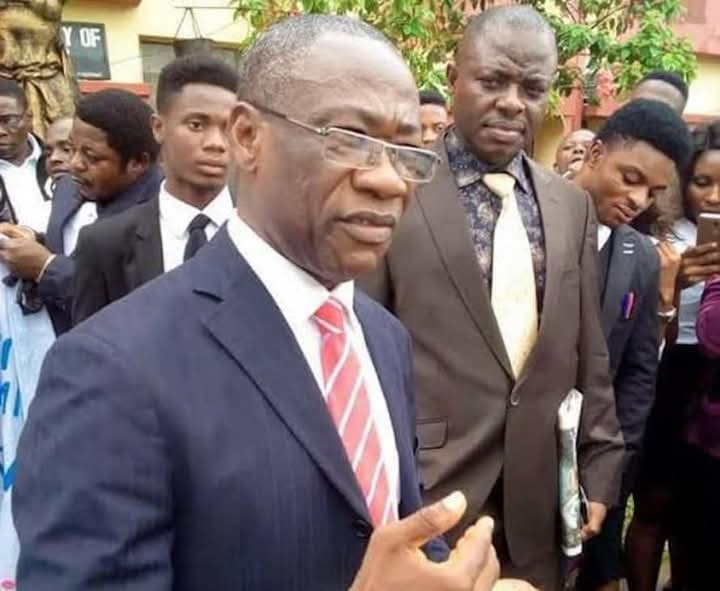CSP Babagana Mingali, a Forensic Analyst told a Federal High Court in Abuja that no nudes photographs were found in the mobile phones belonging to Prof. Cyril Ndifon, Dean, Faculty of Law, University of Calabar (UNICAL), during analysis.
Babagana, a 2nd defence witness (DW-2), who was subpoenaed by the court to testify in the alleged sexual harassment charge, works at the laboratory of the Office of the National Security Adviser (ONSA).
The witness spoke before Justice James Omotosho while being led in evidence by the defence lawyer, Joe Agi, SAN on Thursday.
The News Agency of Nigeria (NAN) reports that the Independent Corrupt Practices and Other Related Offences Commission (ICPC) is prosecuting Ndifon on alleged sexual harassment.
Ndifon, alongside his lawyer, Samuel Anyanwu, is preferred with a four-count charge bordering on alleged sexual harassment, cybercrime and attempt to pervert the course of justice.
The ICPC alleged that Ndifon, while serving as the Dean of the Faculty of Law at UNICAL, requested the female Diploma student, identified as TKJ and a star witness, to send him “pornographic, indecent and obscene photographs of herself” through WhatsApp chats.
Anyanwu, one of the lawyers of the defence, was joined in the amended charge filed on Jan. 22, 2024, by the commission on the allegation that he called the star witness on her mobile phone during the pendency of the charge against Ndifon to threaten her.
They, however, pleaded not guilty to all the counts.
Upon resumed trial on Thursday, Babagana told the court that he joined the Nigerian Police Force in 2010 and was posted to ONSA in 2017.
He said he received a letter from the court on July 5, 2024, which came with two mobile phones, ordering a forensic analysis of the two phones belonging to Ndifon and his co-defendant, Anyanwu.
The witness said he conducted the analysis on the mobile phones and wrote a report on them.
He said the report was done on Aug. 8, 2024, and was presented to the court.
Justice Omotosho admitted the letter and the report as exhibits in the case after they were tendered by Agi.
Babagana told the court that his office used highly professional tools in trying to extract documents from the phone, but could not.
“My lord, we used the universal forensic extraction device, a touch tool and some accompanied Cable 2070 and Cable 100, including some external storage devices in trying to extract the data,” he explained.
When asked if he saw any nude photographs, email trails, voice recording, text messages or conversations in the phones, Babagana said, “I did not find any.”
The analyst restated that no relevant information was found in the two phones between January 2021 up until January 2024 as the WhatsApp applications were out of date.
According to him, there is need to return them to the owners to update it so as to achieve the desired result.
He told the court that officials from other agencies, including the ICPC, are also being posted to the NSA lab.
During cross-examination by ICPC’s counsel, Osuobeni Akponimisingha, the witness said he had actively practised forensic analysis for about five years.
He insisted that ICPC staff also work in the laboratory, though he could not substantiate the claim with any evidence .
He admitted that the police, the Economic and Financial Crimes Commission (EFCC) and the ICPC had forensic labs.
He, however, said he was yet to see the ICPC lab.
He admitted that the same device (touch tool) used by his office, was also used by the ICPC in generating the exhibit (Exhibit H), which were the images from the mobile phone belonging to the professor.
The witness also admitted that it is possible to find relevant information in the phones if the the WhatsApp is updated.
Justice Omotosho adjourned the matter until April 3 for continuation of defence.









